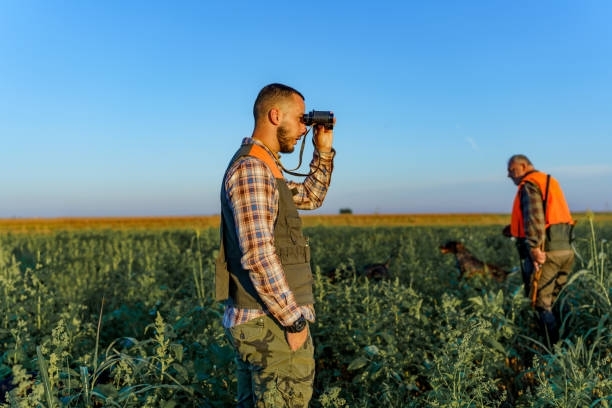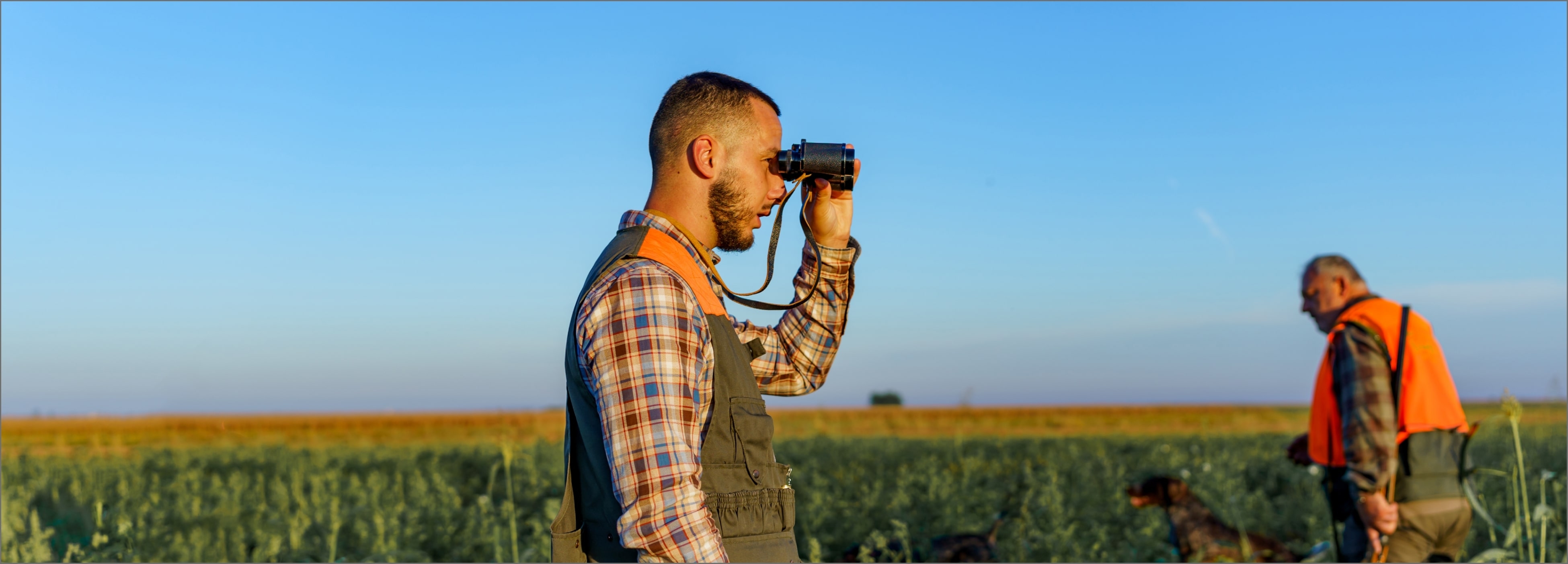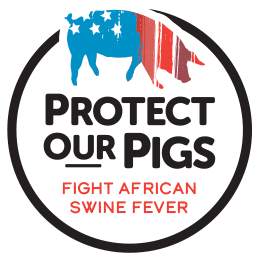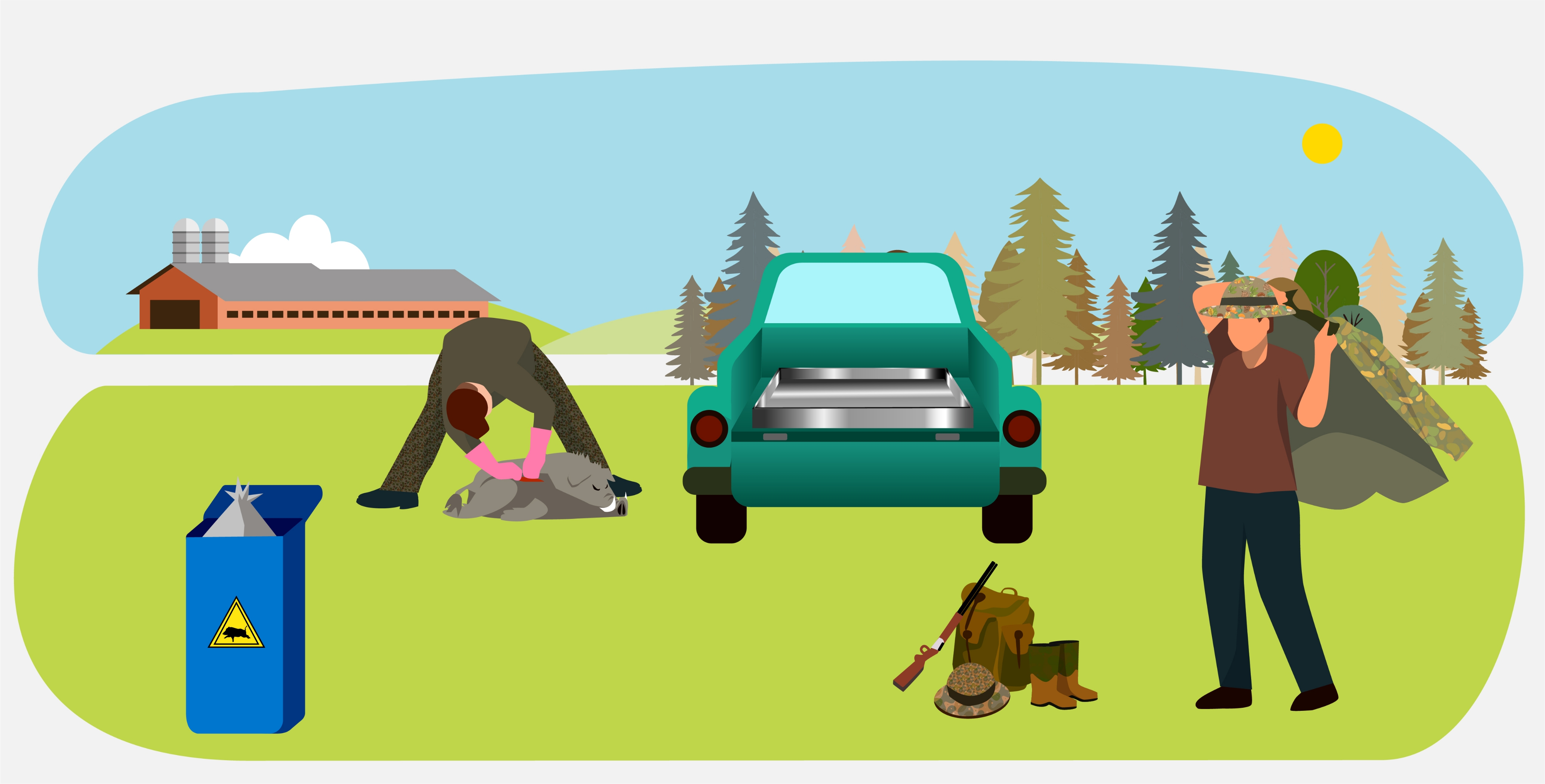Hunters play a very important role in protecting the American swine herd from African swine fever (ASF)—a highly contagious and deadly viral disease that spreads rapidly and affects domestic and feral swine alike. Even one case of swine fever can wipe out every pig in the area, risking a multi-billion-dollar loss to our economy. You have a unique opportunity to help protect our pigs.
How You Can Spot Disease
Seeing signs of disease during a hunting trip may be the first sighting of ASF in the United States. Though it is not a threat to humans, if ASF were to come to our country, it would interrupt pork production and could cause severe job loss for anyone whose livelihood involves pigs. Even if you do not hunt pigs, you may see signs of feral swine infected with ASF in the wild.
Animal health surveillance is the key to detecting animal diseases early so we can respond quickly and prevent the spread. When you are out hunting:
- Be aware of the prevalence of feral swine where you will be hunting: Feral Swine Population Distribution.
- Do not handle feral swine that show signs of sickness or are found dead.
- To report sick or dead feral swine and for help in your area, report in the “Squeal on Pigs” app, contact APHIS Wildlife Services at 1-866-4-USDA-WS or use the Wildlife Services’ program directory to contact your local program. Another option is to connect with your local Extension agency, wildlife agency, or other professionals in your area
6 Key Prevention Steps
How To Prevent Disease Spread
ASF can devastate swine populations, but you can help protect our pigs from this highly contagious disease. Biosecurity during hunting includes all measures and procedures you can take to reduce the risk of introducing or spreading ASF and other animal diseases. By taking key biosecurity measures, hunters help protect our pigs.
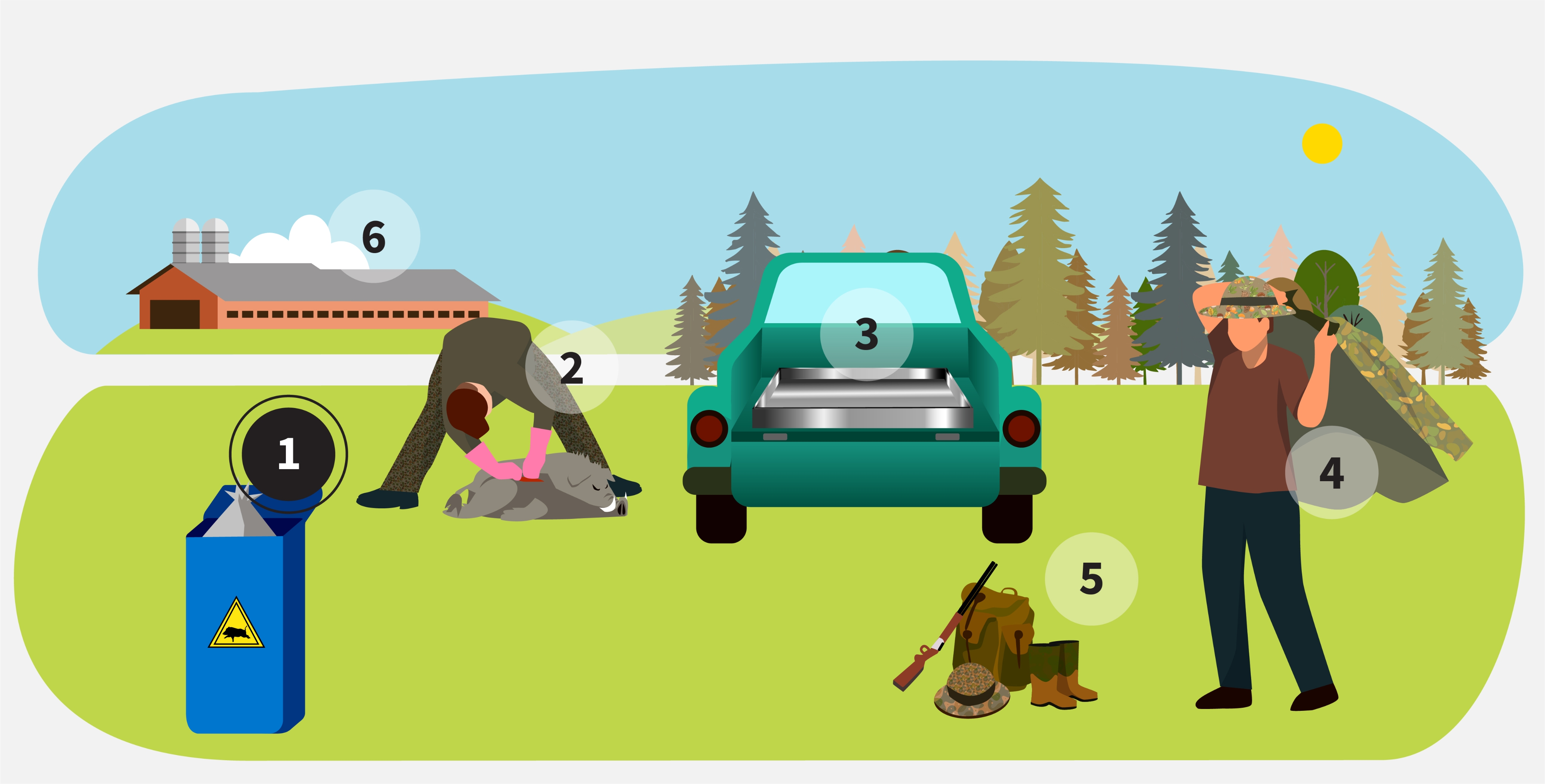
Step 1: Dispose of waste properly.
Don't leave food where wild animals can access it. Dispose of all food and leftovers properly.

Step 2: Dress game in the field.
Field dress hunted game and fowl, when possible, to reduce the risk of disease transfer. Always wear disposable gloves when handling carcasses and when possible, wash your hands afterward.

Transport harvested game safely.
Package your catch in leak-proof containers to prevent environmental contamination from infected blood leaks.

Step 4: Change clothes and shoes.
Before entering or leaving areas where you've been around wildlife, change your clothes and shoes to prevent bringing disease home. Wash your hunting clothes and disinfect your shoes as soon as possible.

Step 5: Clean equipment.
Clean and disinfect your vehicles and equipment. Make sure antlers and skins are cleaned of blood and viscera before leaving the area.

Step 6: Stay away from domestic pigs after a hunt.
People can’t get ASF, but they can carry and spread the contagious virus on clothing, shoes, and equipment. Avoid contact with domestic pigs after hunting for any animal and wait to visit pig farms, petting farms, or anywhere pigs may be.
Report Any Signs

Immediately report animals with any signs to State or Federal animal health officials or call USDA for appropriate testing and investigation.
Call USDA at 1-866-4-USDA-WS


